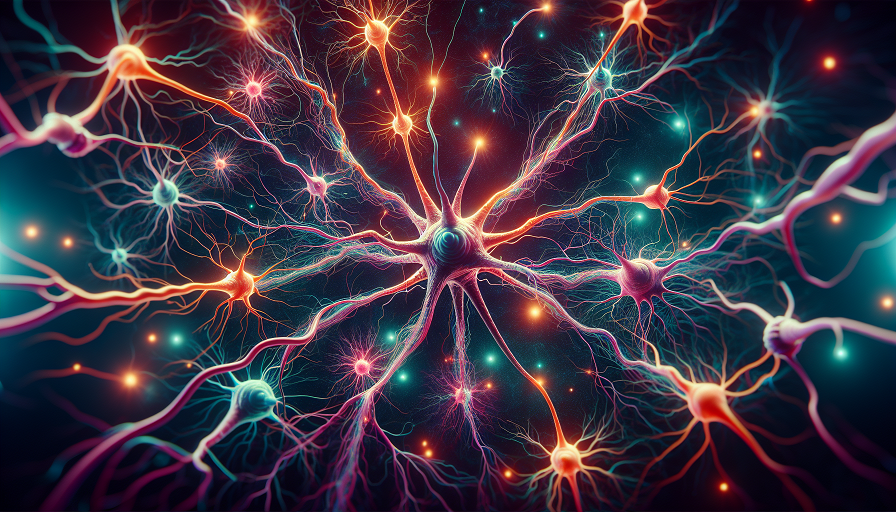
Our brain is a remarkable organ, capable of adapting and changing even after experiencing damage or decline. Cognitive rehabilitation is a fascinating area that leverages this ability to improve brain health and functionality. Through various techniques, individuals can recover from injuries, enhance their cognitive skills, and improve their quality of life.
Contents
What is Cognitive Rehabilitation?
Cognitive rehabilitation refers to a collection of therapeutic strategies aimed at improving mental processes such as memory, attention, executive function, and problem-solving. These techniques are commonly used for individuals who have experienced brain injuries, strokes, or other neurological conditions that impact cognitive function. Additionally, they are also helpful for people experiencing age-related cognitive decline or those with certain mental health issues.
Cognitive rehabilitation is not a one-size-fits-all solution. Each program is tailored to the individual’s needs, addressing specific cognitive deficits. The ultimate goal is to help people regain independence and enhance their daily living skills.
How Does Cognitive Rehabilitation Work?
The Role of Neuroplasticity
One of the key principles behind cognitive rehabilitation is neuroplasticity—the brain’s ability to form new connections and pathways. Think of it as the brain’s way of rewiring itself. When we engage in cognitive rehabilitation exercises, we’re essentially training our brain to create and strengthen these new neural connections.
Types of Cognitive Rehabilitation Techniques
There are many cognitive rehabilitation techniques, each targeted at different cognitive functions. Here are some of the most common approaches:
- Restorative Techniques: These focus on rebuilding and repairing cognitive functions, such as using memory exercises to improve recall ability.
- Compensatory Techniques: Instead of repairing the lost function, these strategies help individuals work around deficits. For instance, using memory aids or organizational tools to manage daily tasks.
- Cognitive-Behavioral Therapy (CBT): While traditionally used for mental health treatment, CBT can also aid cognitive rehabilitation by addressing behavioral and emotional aspects, thus supporting cognitive improvements.
- Computer-Based Programs: These involve using software and apps designed to offer cognitive exercises and track progress over time.
Benefits of Cognitive Rehabilitation
Improved Cognitive Function
One of the most obvious benefits is the enhancement of cognitive functions like memory, attention, and problem-solving. For individuals recovering from brain injuries or strokes, this can mean a significant improvement in their ability to perform daily activities.
Increased Independence
By addressing specific cognitive deficits, individuals often find themselves more capable of managing tasks on their own. This increase in self-sufficiency can lead to boosted confidence and a sense of empowerment.
Enhanced Quality of Life
Improved cognitive abilities and greater independence often lead to a better overall quality of life. People may find themselves more socially active, able to participate in hobbies, and experience fewer frustrations in daily life.
Who Can Benefit from Cognitive Rehabilitation?
Brain Injury and Stroke Survivors
Individuals who have suffered from traumatic brain injuries or strokes are prime candidates for cognitive rehabilitation. These techniques can greatly assist in regaining lost cognitive functions.
Older Adults
As we age, cognitive functions can naturally decline. Cognitive rehabilitation can help mitigate this decline, allowing older adults to stay mentally sharp and active.
Individuals with Neurological Conditions
Conditions such as Alzheimer’s disease, ADHD, and multiple sclerosis often involve cognitive challenges. Cognitive rehabilitation can provide strategies to cope with and compensate for these difficulties.
Those with Mental Health Conditions
Mental health disorders like depression and anxiety can also impact cognitive function. Cognitive rehabilitation can be part of a broader treatment plan to help improve cognitive and emotional health.
Real-Life Applications and Success Stories
Consider the case of individuals recovering from a stroke. Through tailored cognitive rehabilitation programs that focus on memory exercises, speech therapy, and problem-solving tasks, many have regained significant cognitive functions that allow them to return to work or manage their daily affairs independently.
Similarly, older adults participating in cognitive rehabilitation programs often report feeling more alert, with improved memory and concentration, allowing them to enjoy more active social lives and hobbies.
Getting Started with Cognitive Rehabilitation
If you or a loved one could benefit from cognitive rehabilitation, it’s crucial to consult with a healthcare professional. A doctor or therapist specializing in cognitive rehabilitation can assess specific needs and develop a personalized program.
Many rehabilitation programs are available at hospitals, clinics, or through specialized therapists. Additionally, there are numerous at-home exercises and apps designed to support cognitive rehabilitation, allowing individuals to continue their progress outside of formal sessions.
Cognitive rehabilitation holds immense promise for enhancing brain health across various conditions and age groups. By leveraging the brain’s natural ability to adapt and recover, cognitive rehabilitation not only aids in recovery but also offers a pathway to a more fulfilling and independent life.
As we continue to explore the vast possibilities of the human brain, the journey through cognitive rehabilitation reminds us that recovery is possible, adaptability is inherent, and every step forward, no matter how small, is significant in achieving a better, more fulfilling life.

